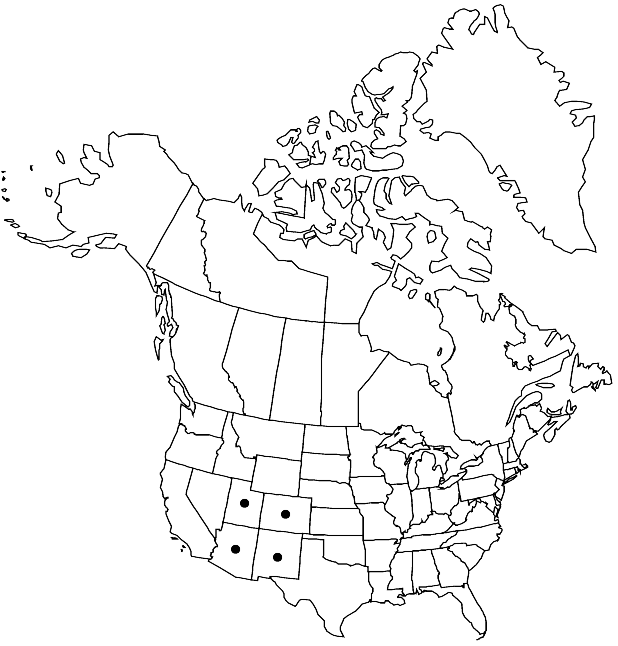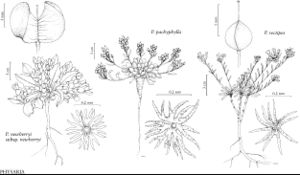Physaria rectipes
Novon 12: 327. 2002.
Perennials; (loose, spreading); caudex simple or branched; densely pubescent, trichomes (subsessile), 4–6-rayed, rays furcate or bifurcate, (moderately tuberculate over arms, less so or smooth over center). Stems few to several from base, ascending or prostrate, (arising laterally, also from within basal leaves, usually unbranched, rarely branched), 0.5–3(–6) dm. Basal leaves: blade narrowly oblanceolate or broadly elliptic, 1–7(–12) cm, margins entire or shallowly toothed, sometimes repand, (inner blades usually flattened in age, surfaces often gray-green, scabrous). Cauline leaves (usually secund); blade spatulate or obovate, 1–2.5(–4.5) cm, margins entire or shallowly toothed, (flat or involute). Racemes somewhat crowded (to moderately elongated in fruit, exceeding basal leaves). Fruiting pedicels (often divaricate-spreading and straight, or horizontal and loosely sigmoid, sometimes slightly recurved), 5–15 mm. Flowers: sepals broadly elliptic or oblong, 4–7.5(–9) mm, (median pair thickened apically, cucullate); petals cuneate or obovate, 7–10(–16) mm, (tapering gradually to broad claw). Fruits subglobose to ovoid or ellipsoid, sometimes compressed, (4–)5–7(–9) mm; valves sparsely pubescent, trichomes appressed or erect, sometimes sparsely pubescent inside; ovules (8–)12–16(–20) per ovary; style 2–7 mm. Seeds somewhat flattened. 2n = 10 + 2, 18, 20, ± 40.
Phenology: Flowering May–Jul.
Habitat: Sandy soils, limey knolls, rocky hills, clay hillsides, dry ridges, weathered rocks, gravelly outwashes, stony slopes, pinyon-juniper woodlands
Elevation: 1500-2600 m
Distribution

Ariz., Colo., N.Mex., Utah.
Discussion
As here circumscribed, Physaria rectipes remains heterogeneous and may represent more than one taxon, even after the recent removal of P. pulvinata.
Selected References
None.
